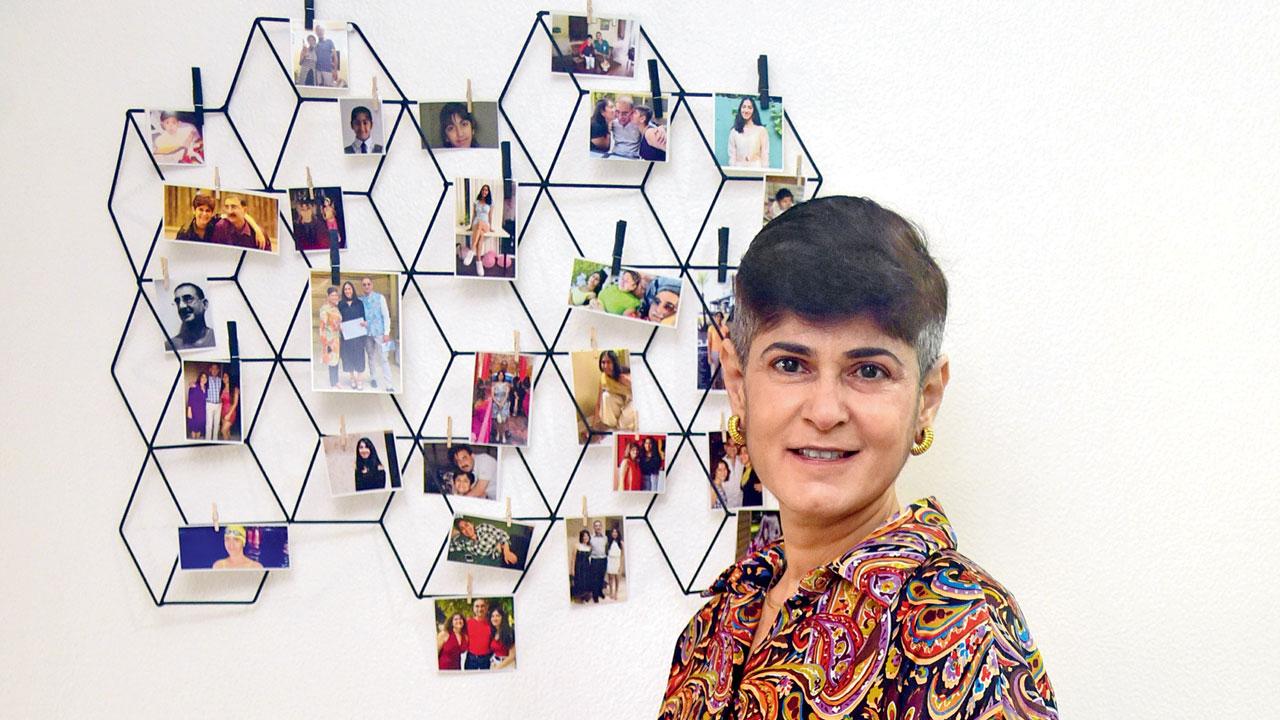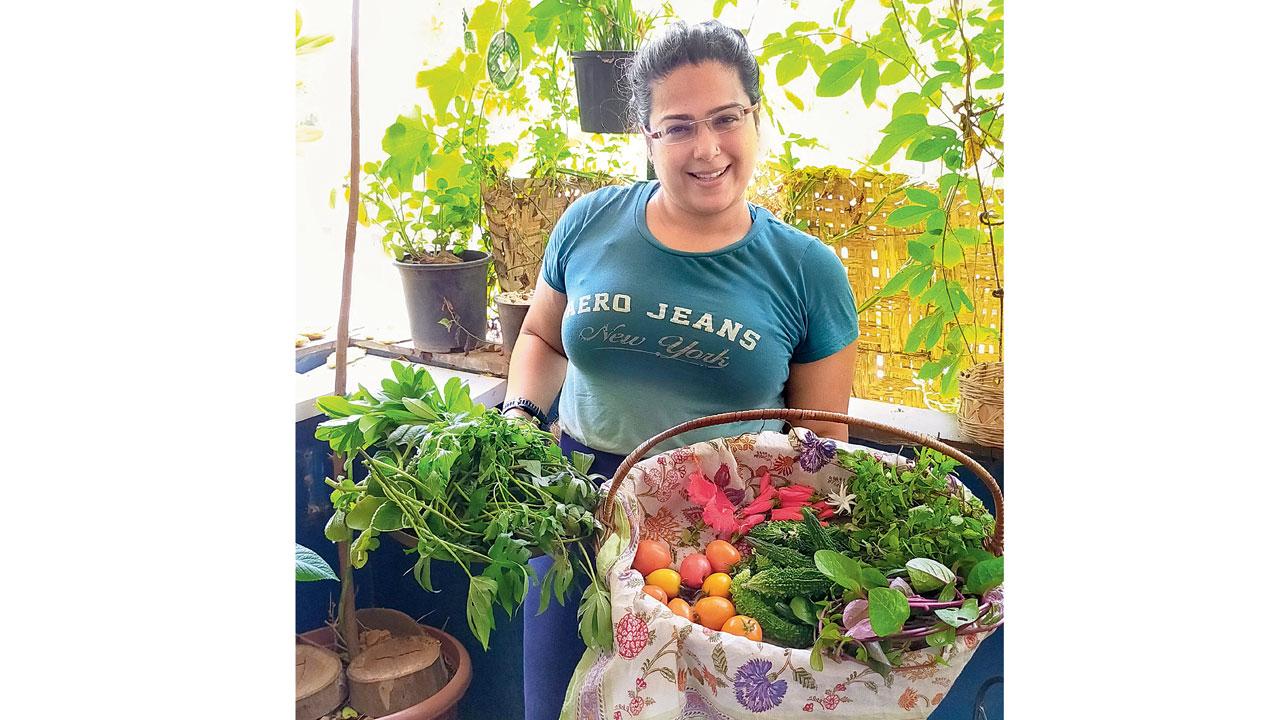With the global economy headed for a possible recession in the new year, innovators and never-say-die hustlers give us practical fixes and reliable advice to negotiate the rough weather

Pranay Mathur
By Aastha Atray Banan, Jane Borges, Yusra Husain, Heena Khandelwal and Nidhi Lodaya
ADVERTISEMENT
Learn to raise funds for harsh winters
Says Pranay Mathur, Partner and CEO, Real Time Accelerator Fund, targets cybersecurity, fintech, SaaS sectors and investor in emerging markets
The first of the three most important things founders can do in the startup world, is build a sustainable model inside their business: A part of their business should be profitable so that it can keep making money without burning it. This is so that they can fund themselves if a recession does hit.
Second, enter into profitable collaboration: Two or three companies should come together and help each other. And third, focus on angel investors (a high-net-worth individual who provides financial backing for small startups or entrepreneurs, typically in exchange for ownership equity in the company). Venture capitalists may have a hard time explaining returns and profits to their investors, but angel investors are willing to bet on startups.
Attitude wise, entrepreneurs have to become smarter than ever before. They have to know how dynamics are changing. Even if they have to lay people off, it has to be done sensitively. Collaboration is key and goes a long way in creating a healthy ecosystem.
Actively learn to thrift
Say Sana and Alfiya Khan, Founders, Bombay Closet Cleanse, who propagate a sustainable lifestyle through their thrift store where you can sell, buy and donate clothes
Easy on the pocket, fashionable and environment-friendly, thrifting is a viable option to stick to when entering the new year since the thought of a possible recession is looming at the back of our minds. And if you have the skill to hoard but not utilise all that’s in your wardrobe in equal measure, then selling your clothes to thrift stores for upfront payment or store credit, is the way to make money while staying fashionable.
While buying pre-loved pieces from thrift stores, you’ll realise that often branded wear is available for unbelievable prices, helping you keep your closet budget in check. It is important to keep a few tips in mind when thrifting, though. Be mindful of what you are buying and how much you really need it. Ask yourself this question when you find yourself attracted to any piece of clothing or accessory: How many times am I going to wear this? Will I wear it at least 30 times over say five years? Let it go if the answer is, no. Look at your wardrobe as an investment, not a storeroom to hoard stuff. Fast fashion, that you wear only a couple of times and discard, tends to end up in the trash, taking a toll on the environment too.

Pic/Pradeep Dhivar
When choosing clothes, put your money behind versatile, basic pieces. An example of this would be a well cut white shirt or a smart pair of black trousers. Using these with other pieces, you can create multiple mix-and-match looks, making one piece of clothing last you long while still allowing you to maintain variety in your OOTD (outfit of the day). It will make a sizeable reduction in your fashion spends and budget.
For weddings, special occasions and grand parties, actively consider checking out sites that let you rent fashion. It’s an affordable and accepted solution for the modern, aspirational dresser. We don’t like to repeat party clothes or wedding attires after posting pictures in them on social media, so why spend thousands on an ensemble you are likely to wear again only after a year or even never?
Most thrifting labels, including ours, accept all clothes, even those that are not fit for resale. We donate them to charity or to organisations that use the fabric for making other goods, making sure that even these pieces don’t reach the landfills.
Invest in digital upskilling
Says Mayank Kumar, Co-founder and MD of online learning platform upGrad, who thinks data science, machine learning, AI, and digital marketing will continue to be valuable skills
The year 2023 will be a sort of trailblazer for all industries as recruiters will continue to consider tech-skilled talent for driving business growth. According to upGrad Data Labs, MBA remained the most preferred hiring domain for recruiters during the year 2022, followed by data science, machine learning and AI, and digital marketing, respectively, and this will continue to grow even in 2023. It is important for professionals to understand the market specs that are making the cut and then accordingly strengthen their expertise. This will help them translate corporate problems into tangible business results.

The learners should select a programme that is in line with their long-term goals, taking into account both their professional and personal interests. The decision should be based on a combination of elements rather than just being dependent on one, so as to make an informed learning choice. The primary factor should be the length of the programme—one with a longer duration, offering in-depth learning, exposure and hands-on training, accelerate the employability quotient. Secondly, choosing a course that is affiliated with renowned institutions or that has received accreditations from national or international bodies is important to establish credibility. Thirdly, it is recommended to weigh balances on the cost incurred from the programme and its return on the value gained, before making the final call. The ongoing economic slowdown has impacted working professionals and their purchasing power significantly. Hence, online courses must be designed to offer concrete career ROI. Fourthly, the kind of career opportunities the course offers is critical in the decision-making process.
Build a side hustle
Says Richa Singhal, a banker by profession, she rekindled her passion for baking during the pandemic and began hawking her creations on @richkcraft, Instagram
It was sheer curiosity and intrigue about the working of the finance world, which led me to pursue a career in banking. I’ve been with HDFC Bank for the last 10 years, and grateful for how it has helped me grow as a professional. Baking, on the other hand, was something I was exposed to as a child through my mother, and it continued to be a hobby I enjoyed on the side. I found the science of baking fascinating, but it was never a career option.
As cliched as it sounds, it was during the pandemic-induced lockdown that I started taking baking more seriously. While I continued to work from home, I now had a couple of extra hours on hand, due to the time saved on commuting. As most of the bakeries were shut then, I decided to bake for myself, as it helped with my sweet cravings. One thing led to another, and today baking has become an important part of my life, but so is my job.
 Pic/Nimesh Dave
Pic/Nimesh Dave
This is something we need to remember when building a side hustle—don’t give up on your fulltime job immediately. A side hustle is called a side hustle for a reason. You can’t go all vagabond, and say, I will quit my job to follow my dreams. We need to do a reality check first, because there are bills to pay, and a home to run. A day job serves as a cushion, especially if something goes wrong.
What I suggest is to first find your passion, not with the intention to make money, but something that will bring you joy and what you won’t see as a chore. I personally feel that there’s a latent passion in everyone—finding it, and putting it to good use, is all upon you. You could love driving and want to become an Uber driver by night, and that’s really fine.
But most crucial to nurturing a side hustle is making time for it. Of course, it’s difficult when you have a full-time job. But it’s not impossible. So, if a meeting has got cancelled or delayed, use that time to squeeze in doing what you like. Or if you have a long weekend, which is not hectic or doesn’t come in the way of your personal life, use it to your advantage. It could just be an extra hour every day.
That being said, don’t compromise on your day job, or use company resources to pursue the side hustle. I can’t cancel a meeting to bake a cake. Side hustles don’t yield results immediately, but at some point, it will reap rewards, including monetary. You have to be patient, persistent and motivated. The most valuable gift of a side hustle is that it helps increase your self-worth. It will make you feel good about yourself.
Strengthen relationships
Says Dr Varkha Chulani, Clinical psychologist-psychotherapist, who specialises in the psychology of peak performance in personal, professional and organisational challenges
Paradoxically, the more we prepare for the unknown, the more insecure we become. All anxiety usually stems from us seeking guarantees. And life today has become more uncertain than ever. Learn to embrace uncertainty. As couples, it’s important to remind yourselves that anything can happen to any one of us, at any time. Let’s make our existence together as calm and loving as possible. Ignore the inconsequential, minimise the irrelevant, and build an environment that’s free from drama. Rewire your brain to enjoy peace together. “Boring” is good.

Pic/Shadab Khan
Cultivate a love, marital relationship or friendship where the foundation is built on authenticity. In today’s fake world, train yourself to showcase the real you. Nothing is more vital to relationship building than genuineness. Be interdependent, but not obsessively dependent. Let togetherness not be an act of favour to the other or an act of rescuing, but of mutual interdependence, where both believe that the relationship gives them joy and adds value to their already valuable existence. No one completes us. It’s best that we are all “finished” products who don’t need to have a partnerto feel complete.
From a financial perspective, do not spend more than you earn. It’s a simple but vital rule—not today, not ever. Emphasise needs over wants. The fullfillment of desires can be delayed. Finances are a very important part of relating. Money at the end of the day is an enabler. Will you allow your monies to facilitate your relationship or destroy it? Common money values are essential to healthy loving.
Families are built on trust. Ask if your family ideologies are driven by dominance and control or by mutual growth and development. Every action comes from purpose. Once we are able to discern the intent behind suggestions, advice, guidance, allegiance comes by default. Toxicity is often a result of motives driven for the self. Often, jealousy and grudges drive families rather than genuine consideration for one another. Be aware that the most common yet hardly acknowledged emotion within families is jealousy. Understand and accept your own feelings of jealousy and those of the members you engage with. Do not consider marriage with any and every partner you fall in love with. There are many facets to a healthy, long-lasting relationship. Love is only one of them.
Strategise spending-saving
Says Nisreen Mamaji, Certified financial planner and life insurance advisor, who suggest investing in mutual funds over RDs
Follow the 50:30:20 rule where half of your salary goes into utilities, bills, rent, school fees, etc. The remaining 50 per cent should be divided into recreational activities [20 to 30 per cent] and savings [20 to 30 per cent]. To increase savings, cut down on recreational activities such as going for shopping.
Before we go further, understand that savings is money you didn’t spend today, but will spend tomorrow. Your savings portfolio should comprise an emergency fund covering six months of expenses, in case you lose a job or for any other emergency. This should be in the form of a fund that can be liquidated easily.

Pic/Sameer Markande
Start a retirement plan even in your 20s and 30s—the sooner you start, the better it is due to compounding interest. Here’s how compounding works: Akbar and Birbal were playing a game of chess where the latter asked for a grain of wheat for the first square, two for second, four for third, and so on for all the 64 squares. We all know how that story ended and that’s the power of compounding.
Also, recognise and label your priorities: Are you looking at a short term goal or long term? Do you want to buy an expensive gift, go on a foreign vacation, buy a car or a home? Once that is set, and put on a timeline, start saving for it. If you don’t have a goal, start wealth creation, which can be used to actualise your dream.
Recurring deposits [RD] do not keep up with inflation, and deteriorate your purchasing capacity. Invest in mutual funds, and if you are a novice, start with large caps like ICICI Prudential Bluechip Fund or Kotak Bluechip Fund. The best approach would be to reach out to a professional and allow him/her to guide you through various kinds of mutual funds and build a diverse portfolio.
If recession does hit, and the market goes for a correction, do not panic. As an investor, you will be able to buy more units in the same amount, and once the market bounces back, you are likely to see a better return.
Exploit monetary benefits of recycling
Says Amishi Parasrampuria, Co-founder, Upcycler’s Lab, which hopes to change mindset and behaviour around the environment
The first thing to overcome is the mental barrier around reusing and recycling. Many assume it’s difficult and expensive. It’s also why we prefer working with children, because adults often don’t have the time. One can start by making small changes.

For starters, you could have green and blue bags at home to distinguish dry and wet waste. All your dry waste can be recycled, and there are organisations that come to your doorstep to collect waste. Similarly, you can wash, clean and store all your milk tetra packs and donate them to NGOs that recycle. Around 70 per cent waste in any Indian household is wet waste and unlike dry waste, it is not easy to store for composting at home. You could carry out composting at the building level.
Those living on their own or in nuclear setups, tend to order in more, when compared to those living in joint families. When you are doing something like that, be mindful about how often you order in. Try to cook at home whenever possible and eat out instead. If you do end up ordering in, wash the plastic containers and reuse them.
When shopping for food essentials, try and buy in bulk directly from the store and in your own container. Don’t toss clothing and footwear if they have a slight defect or a rip. Unfortunately, due to affordable fast fashion, old products have now become easily replaceable, when they can be fixed by a tailor or a cobbler. It’s all about going back to what we used to do traditionally.
Live healthy: Quit cigarettes, drugs, booze
Says Subah Saraf, Founder of Satvic Movement, a holistic health education collective
We are what we consume, and Ayurveda divides food into three categories: Satvik, rajasik and tamasik. Satvik foods such as fruits, vegetables, sprouts, grains and nuts up our energy and happiness levels. Stimulants such as alcohol, cigarettes and even tea and coffee fall under the tamasik category, and bring distress, diseases and lethargy, and impact our liver.

I don’t think anyone is unaware anymore of what stimulants do and why we should quit them. But let me illustrate how they affect us: Once, a man was riding a horse. After a point the horse got tired and sat down, the man whipped him, the horse got up and strode again. This happens a couple of times. While the man views the lashes as something that energises the horse, soon irrespective of the number and intensity of the lashes, the horse will not be able to continue.
Stimulants are like lashes to our nervous system. They give us a high, a kick or blast of energy but make our nervous system weaker and weaker to the point that it loses vitality. Satvik food gives authentic and sustained energy.
We think self-control and motivation are key to quitting stimulants, but they both are overrated. After a few days or weeks, we go back to our routine. Altering the environment brings lasting change. We reach out to what’s within range, so make changes at home and the workplace such that your exposure to stimulants becomes zero. That’s the only way to get rid of them. If you can’t pluck them out of your surroundings completely, at least reduce them: Keep the packs of cigarettes in an hard-to-access drawer or corner—anything that demands effort.
Grow your own greens
Says Diipti Jhangiani, Urban farmer and low-waste life proponent
First, identify a space in your home or office that gets sunlight, two to three hours is good enough. Start with what’s easiest to grow: Microgreens. They require the least amount of watering and sunlight, and are ready to harvest within 10 days. The seeds can come from our kitchen cabinets: Mustard, fenugreek, fennel, sesame, etc. The microgreens can go into salads, or into dals and sabzis, if you don’t like them raw.
The next easiest things to grow are herbs such as basil, lemongrass, chives and mint. Herbs require just two to three hours of sunlight, so even a windowsill will do and they go into chai and chutneys. Leafy greens, the foundation of salads, stir-frys and sabzi, come next. You’ll need to procure seeds for these. Some easy-to-grow greens include spinach, the sturdier Malabar spinach, radish, onion greens, lettuce, bok choy and kale. These need the same amount of sunlight as herbs, but not necessarily direct sunlight; filtered sunlight will do.

Coming in fourth, if you have the space, are essentials such as chillies, brinjals, tomatoes and a small lemon plant. These require at least four to five hours of sunlight and larger pots, minimum of 10 x 10 inches in size. They do not require direct sunlight. If you have a balcony that’s open to the sky, then you can even try your hand at nuanced vegetables that grow on climbers and creepers, such as gourds. These balconies also open opportunities to grow fruit trees such as chikoo, custard apple, papaya, banana and mulberry.
Few things to keep in mind: Maintain a good mix of soil and manure, and feed good manure to the plants once a month, as it keeps them alive and healthy. Most urban plants die due to overwatering. Typically, they need to be watered on alternate days; check the soil before you turn on the tap. Study the kind of plant you are growing to know the amount of water it requires, instead of listening to different people. Lastly, choose edible plants over decorative ones.
 Subscribe today by clicking the link and stay updated with the latest news!" Click here!
Subscribe today by clicking the link and stay updated with the latest news!" Click here!







